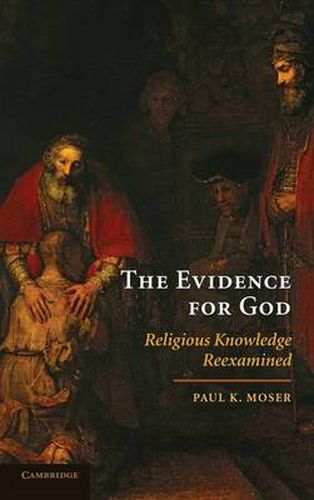Readings Newsletter
Become a Readings Member to make your shopping experience even easier.
Sign in or sign up for free!
You’re not far away from qualifying for FREE standard shipping within Australia
You’ve qualified for FREE standard shipping within Australia
The cart is loading…






If God exists, where can we find adequate evidence for God’s existence? In this book, Paul Moser offers a perspective on the evidence for God that centers on a morally robust version of theism that is cognitively resilient. The resulting evidence for God is not speculative, abstract, or casual. Rather, it is morally and existentially challenging to humans, as they themselves responsively and willingly become evidence of God’s reality in receiving and reflecting God’s moral character for others. Moser calls this ‘personifying evidence of God,’ because it requires the evidence to be personified in an intentional agent - such as a human - and thereby to be inherent evidence of an intentional agent. Contrasting this approach with skepticism, scientific naturalism, fideism, and natural theology, Moser also grapples with the potential problems of divine hiddenness, religious diversity, and vast evil.
$9.00 standard shipping within Australia
FREE standard shipping within Australia for orders over $100.00
Express & International shipping calculated at checkout
If God exists, where can we find adequate evidence for God’s existence? In this book, Paul Moser offers a perspective on the evidence for God that centers on a morally robust version of theism that is cognitively resilient. The resulting evidence for God is not speculative, abstract, or casual. Rather, it is morally and existentially challenging to humans, as they themselves responsively and willingly become evidence of God’s reality in receiving and reflecting God’s moral character for others. Moser calls this ‘personifying evidence of God,’ because it requires the evidence to be personified in an intentional agent - such as a human - and thereby to be inherent evidence of an intentional agent. Contrasting this approach with skepticism, scientific naturalism, fideism, and natural theology, Moser also grapples with the potential problems of divine hiddenness, religious diversity, and vast evil.